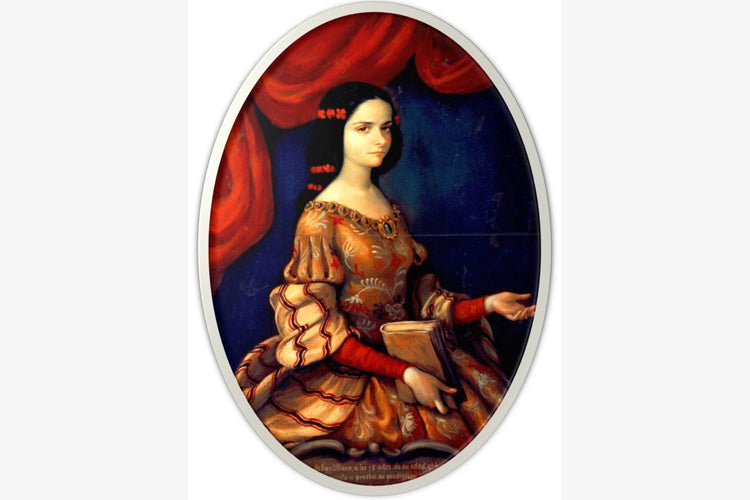SOR JUANA INES DE LA CRUZ
Plant odorants have been present at every stage of biological evolution, interacting with receptors, and initiating events. They bring harmony, balance, and take us away to a different, more connected era. Look at the intelligence in this poem by Sor Juana Ines de la Cruz (1651-1695). Sonnet 147 gives evidence to a very intimate relationship of humans and plants. It has always been this way.
"O rose divine, in gentle cultivation
you are, with all your fragrant subtlety,
tuition, purple-hued, to loveliness,
snow-white instruction to the beautiful;
intimation of a human structure,
example of gentility in vain,
in whose one being nature has united
the joyful cradle and the mournful grave;
how haughty in your pomp, presumptuous one.
how proud when you disdain the threat of death,
then, in a swoon and shriveling,
you give a withered vision of a failing self;
and so, with your wise death and foolish life,
in living you deceive, dying you teach!"
"O rose divine, in gentle cultivation
you are, with all your fragrant subtlety,
tuition, purple-hued, to loveliness,
snow-white instruction to the beautiful;
intimation of a human structure,
example of gentility in vain,
in whose one being nature has united
the joyful cradle and the mournful grave;
how haughty in your pomp, presumptuous one.
how proud when you disdain the threat of death,
then, in a swoon and shriveling,
you give a withered vision of a failing self;
and so, with your wise death and foolish life,
in living you deceive, dying you teach!"


